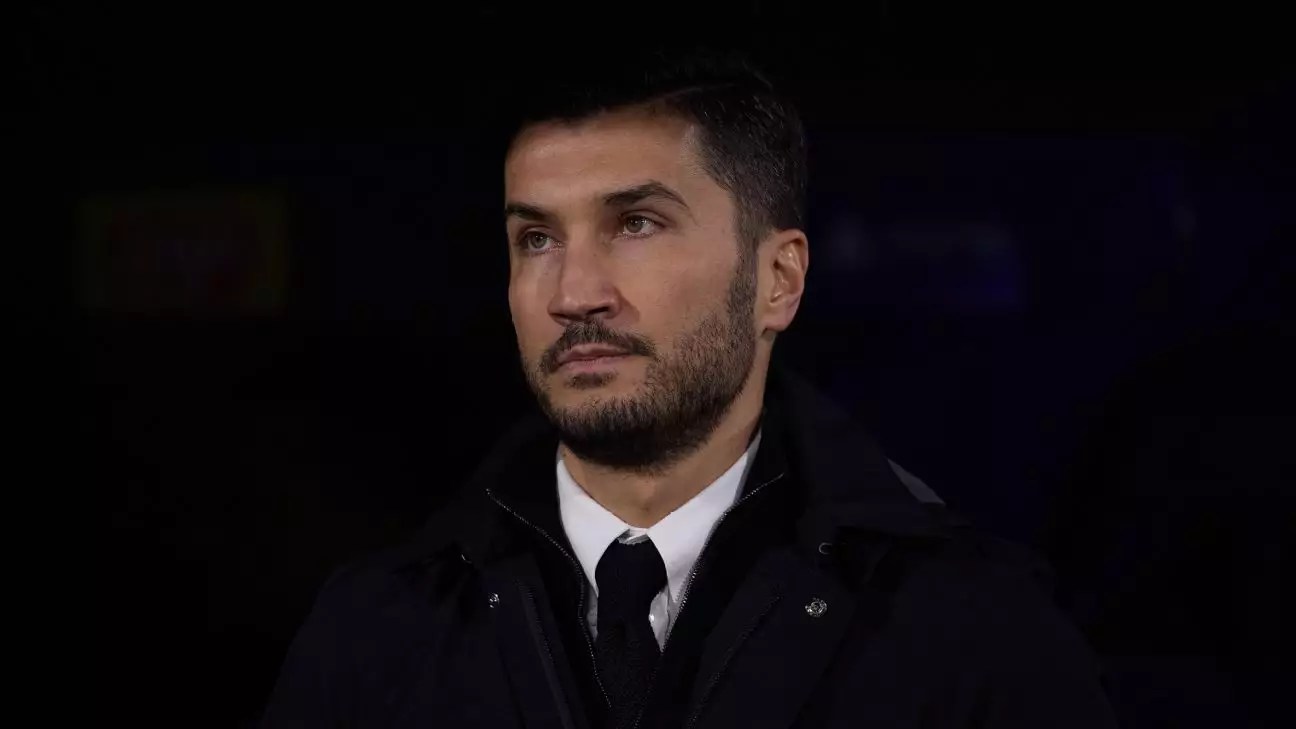In an abrupt turn of events, Borussia Dortmund has once again found itself in the throes of instability as Nuri Şahin’s managerial tenure came to an end just over a year after he took the reins from Edin Terzić. Initially welcomed with optimism, Şahin was seen as the man to rejuvenate the club’s identity. However, the recent trajectory suggests that rather than initiating a renaissance, his leadership led to a stagnation, culminating in disappointing performances across both domestic and European fronts.
Dortmund’s disheartening 2-1 defeat to Bologna epitomized their season-long struggles, placing them 13th in the UEFA Champions League league phase. The Bundesliga presented an even bleaker picture, with the team suffering back-to-back losses that placed them 10th in the standings, a daunting 20 points behind league leaders Bayern Munich. Lars Ricken, Dortmund’s CEO for sport, lamented the team’s performance, stating the grim realities of their situation. With only a solitary win in their last nine matches, hope seemed to wither under the weight of failure.
Even prior to the Bologna debacle, discussions regarding potential successors for Şahin were already in play, pointing towards a deeper malaise within the club’s structure. The list of candidates reportedly includes notable names such as former Bayern Munich coach Niko Kovač, among others. This indicates a significant lack of faith within the club hierarchy regarding Şahin’s capabilities to navigate the team through turbulence.
Interestingly, the circumstances surrounding his dismissal are a reflection of broader challenges rather than a direct indictment of Şahin’s management skills. His inexperience may have played a role in the club’s inability to pivot from a long-standing, ineffective strategy set by Terzić, which attempted to position Dortmund as an underdog. Şahin came in with ideas focused on possession and progressive attacking strategies, yet these plans appeared to dissolve early in the season, leading the team back to old habits that overlooked both effectiveness and creativity on the field.
The tactical inconsistencies under Şahin have painted a grim picture for Dortmund. The team’s late-season efforts lacked the necessary tenacity, exhibiting a hesitance that reflected a fear of failure rather than the determination to win. Matches against VfB Stuttgart and Union Berlin were marked by both poor execution and a reluctance to impose their style, showcasing a lack of cohesion and confidence within the squad.
Matthias Sammer, a former player and advisor at Dortmund, pointed out the deficiencies in both fitness and tactical awareness, stating that the players seemed unprepared, both physically and mentally. This observation aligns with the performance metrics that suggest the players have struggled to integrate any coherent strategy into their gameplay. The situation is akin to a ship adrift, failing to find direction amidst a storm of criticism and contrasting expectations.
While Nuri Şahin has faced substantial blame for the team’s performance, it is essential to recognize that the issue transcends the managerial role. Schalke’s experiences serve as a cautionary tale, as this dismissal marks the fifth managerial change at Dortmund since 2018, yet the core underlying issues persist. The players bear a degree of responsibility; their inconsistent performances have contributed significantly to the team’s downward spiral.
As the roster has undergone some changes, losing key figures such as Erling Haaland and Jude Bellingham, there appears to be a lack of quality replacements. The onus now rests not only on the coaching staff but also on those who are responsible for the recruitment and development of talent. The disparity between expectations and current performance calls into question the board’s decision-making processes, suggesting a need for a thorough evaluation.
The situation at Borussia Dortmund is one marked by uncertainty, yet the potential for a turnaround exists. As discussions around a possible appointment for Kovač reignite, the club must weigh the benefits of long-term vision against the need for immediate results. Kovač may not be renowned for tactical brilliance, but his ability to foster resilience and instill a sense of grit within teams might be vital for revitalizing Dortmund’s fortunes.
Ultimately, Borussia Dortmund’s struggle mirrors a broader narrative of a club in transition. The confluence of managerial instability, recruitment missteps, and player mentality calls for a serious re-evaluation of priorities. A refresh of the squad, along with prudent managerial appointments, could be the key to dispelling the shadows of mediocrity and restoring Dortmund to its rightful place in both Bundesliga and European football. Until such restructuring occurs, the team risks continuing a cycle of underachievement that has plagued its recent history.


Leave a Reply